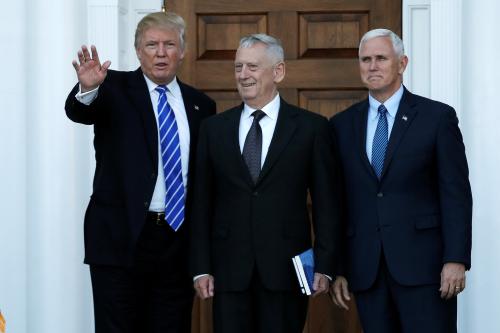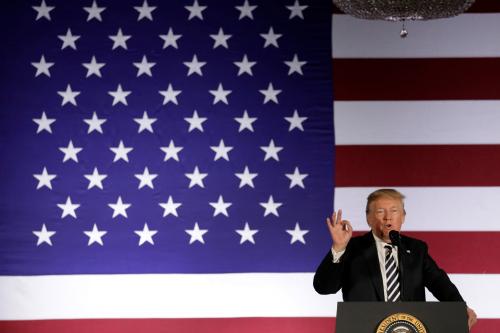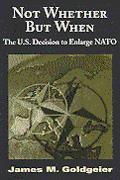Most of the people selected for cabinet and agency head positions by President-elect Donald Trump have made their careers in the private sector. Media descriptions of these men and women have dwelled on their business accomplishments. Their views on broad public policy issues such as climate change and immigration have also been noted, but little light has been shed on the policies these leaders will advocate or pursue apart from easy generalities such as shrinking the federal government or creating jobs.
The sense that President-elect Trump perceives of his job as making deals reinforces the vacuum of information about policies. It’s no surprise then that his cabinet and agency choices have little to say about policies.
It may also be the case that American voters, and especially those who chose Trump, do not appreciate the distinction between business deals and public policies. So here is an effort to explain why it matters in fewer than 1,000 words.
A deal is an agreement between two parties with a common interest: to close on mutually agreeable terms and move on. Deals are the bread and butter of the private sector.
A public policy is just one approach out of many possible to solve a problem confronting a political entity: a nation, a state, a city, a community. The policy by itself will not solve the problem; it simply begins a process that is usually highly complex. A good—meaning effective—public policy depends on how it is implemented. In a political system like the one we have created in the United States, a major policy selected by the President has to be formalized in a legislative proposal. It is often vetted in the cabinet and presented to the Congress. It has to be enacted by the Congress, which normally makes changes to the proposal, and then the cabinet departments and agencies must issue regulations and/or other guidance to spell out how the law will be implemented. Finally, there is the essential step of enforcing the law.
Political scientists have defined two alternative approaches to public policy making: discretionary and rules-based. Discretionary policies target specific members of the political entity: a company (like Carrier Corporation), an organization (like Planned Parenthood), or a person (like Megyn Kelly). The target can benefit (by getting a contract) or suffer (by being boycotted) from the policy, but the rest of the population is affected only indirectly.
Rules-based policies target the whole population (like the tax rate on personal income) or a large segment of the population (pre-school children in low-income families, the elderly). They create a “level playing field” for the target group, meaning the system will not be tilted to benefit one member of the group at the expense of other members.
From this perspective, discretionary policymaking appeals to people accustomed to making deals. It is also the approach favored for centuries by dictators and the leaders in other authoritarian political systems (China, Cuba).
Making good policies in a democracy like ours is hard to do. Really hard. It seems that the best policy on technical grounds is never politically feasible: Congress or a sub-national legislature will not accept it. Instead, policy makers find themselves explaining why the second-best is better than the third-best.
Good policies are rarely if ever black or white choices; they are shades of gray. Every public policy has arguments in favor and arguments against: pros and cons. Almost every policy involves trade-offs that are hard to measure. Often the trade-off is between costs (pain) in the short term vs. benefits (gain) in the long term. Always there are implications for major groups (urban vs. rural, youth vs. elderly) that have to be estimated. Sometimes the implications for U.S. relations with the rest of the world are a crucial factor shaping the policy choice.
It’s easy to see why people go to business school or law school or medical school: to be business executives, lawyers, and doctors. It seems harder for many Americans to understand why young men and women go to public policy schools—in increasing numbers at many leading universities. Arguably our country should value graduates of these schools as much as it values graduates from business, law, and other professional schools.
It matters because the well-being of every American citizen depends on the policy choices made by the politicians we elect at the national, state, city, and local level. Making good public policies is fundamentally different from making good business deals. Good policies can make the poor as a whole better off; deals tend to make the rich richer. Let’s hope that the cabinet members and agency heads in the Trump Administration appreciate the difference and make policies that are good for America and for the rest of the world.









Commentary
Trump’s cabinet, agency picks and the art of policymaking
December 16, 2016